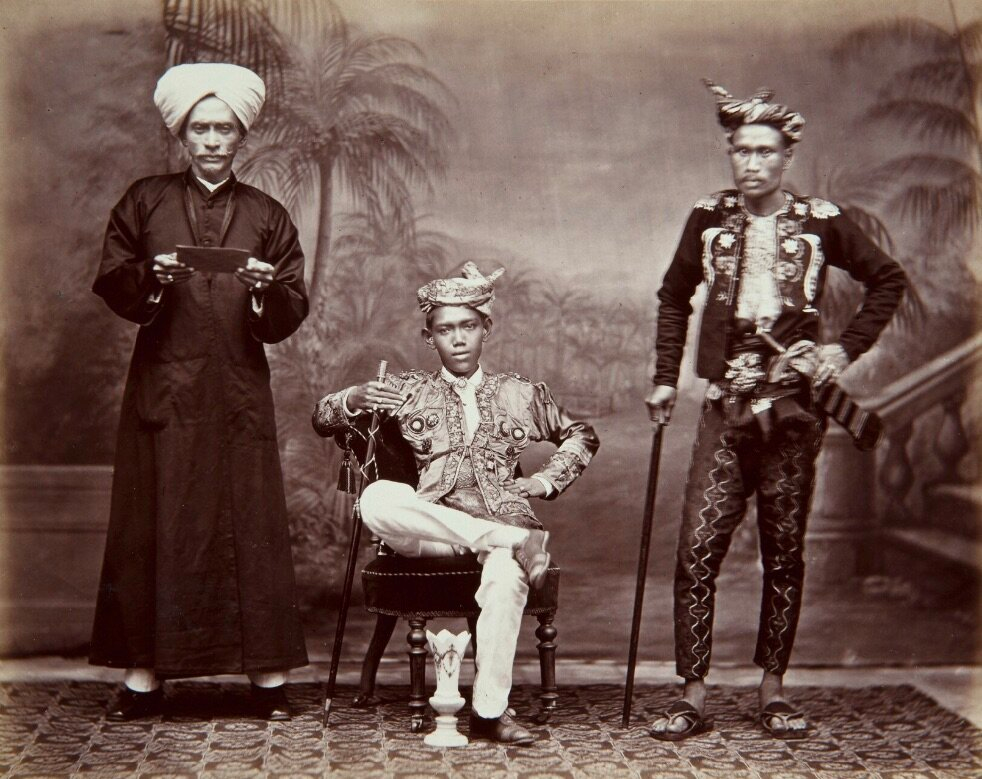High Court of Borneo recognises Sulu heirs, cured defect, in 1939!

The Sulu heirs, in seeking compensation in Arbitration for alleged Breach, will end the 1878 Sulu Deed on Sabah, the 1939 High Court of Borneo Ruling on the said Deed and rule out the possibility of collecting continuing compensation, as in Malaya, in lieu of toll collection. See here.
There are several inter-parte issues before Arbitration in Paris, France. These take their cue from ex-parte Arbitration.
One issue was that the defect in the Sulu Deed — all the Territory from here to there — was cured by the 1939 Ruling. The court held that the intention of the signatories on the 1878 Deed was about compensation in lieu of toll collection. In short, it was never about land, oil and gas and other resources of Sabah.
In Malaysia, property rights are protected under Article 13 (property), Article 5 (right to life) and Article 8 (no discrimination). In law, no one can be deprived of property without compensation. The court will work out the compensation for those dissatisfied with the quantum.
Another issue in Arbitration was the quantum of the nearly US$15b Compensation which may have been based on the mythical loss of land. In law, the court cannot be a party to illegalities viz. unjust enrichment.
Sulu ‘Heirs’ Have Locus Standi?
The 3rd issue was whether the Sulu heirs had locus standi in Arbitration.
The 4th issue was why the Philippines gov’t did not intervene as an interested party in the plight and welfare of the Sulu heirs. When Malaysia and Indonesia agreed to settle their differences on the ownership of the Sipadan and Ligitan Islands in North Borneo, it was at the International Court of Justice (ICJ), The Hague, Netherlands. The Philippines was denied observer status.
Sovereignty
In retrospect, when nine Sulu heirs approached the High Court in Sandakan in 1939 on claims to land in North Borneo, they were recognised as eligible for the annual RM5K compensation in lieu of toll collection along the main waterway in the southern part of the eastern seaboard, and by extension further northward along the same coastal stretch.
The court, by way of obiter dictum, observed that sovereignty resides with the people. Briefly, the Sulu heirs’ land claims in North Borneo were an afterthought based on misinterpreting the 1878 Deed. In law, it does not hold water.
The Sulu heirs didn’t challenge the 1939 Ruling although they reportedly did not accept “loss of land” in North Borneo.
The British North Borneo Chartered Company (BNBCC) ruled North Borneo by Charter on behalf of the British Crown. See here and here.
Lahad Datu
Former Attorney-General Tommy Thomas should have just paid the arrears due to the Sulu heirs from 2013, at RM5,300 per annum, after the Lahad Datu intrusion.
Instead, after GE14 on Wed 9 May 2018, Thomas wrote that long letter to the lawyer representing the Sulu heirs. He enclosed a copy of the 1939 Ruling. Malaysia did not turn up for Arbitration but the Thomas letter appears to have been sufficient material for the Sulu heirs. See here.
The rest is history.
Once Malaysia breached the 1939 Ruling in 2013, the 1878 Deed no longer served any purpose and ceased to exist, and both Ruling and Deed could only be used to work out the Final Compensation.
Archipelago
In legal history, we find that the sultans in Malaya get annual purses until today in compensation for ending toll collection along the main waterways. In addition, after Independence, they were recognised as head of state or Governor. One of them gets picked, every five years, as Agong (Chief of State) and Supreme Commander of the Armed Forces.
The British turned rivermouth dwelling toll collection centres, i.e. riverine kingdoms, into territorial states named after the main waterways. Unlike the western concept, riverine kingdoms in the Archipelago were not territorial. The newly-elevated sultan, Raja, and Yang DiPertua presided over spiritual matters, language, culture, customs and traditions. The British ran the Administration and looked after the defence, internal security and foreign affairs.
In North Borneo, the BNBCC never recognised the Sulu sultan as also the sultan of stretches along the eastern seaboard. The subject may have never been brought up as the local people, unlike now, were mostly pagan. The Sulu sultanate, according to the Madrid Protocol 1885, went defunct when the last Sultan did not leave a male heir. See here.

The Philippines government recognises someone as Sulu Sultan from time to time as the need arises. See here. – New Malaysia Herald
About the writer: Longtime Borneo watcher Joe Fernandez keeps a keen eye on Malaysia as a legal scholar (jurist). He was formerly Chief Editor of Sabah Times. He’s not to be mistaken for a namesake previously with Daily Express. References to his blog articles can be found here.
The points expressed in this article are that of the writer and do not necessarily reflect the stand of the New Malaysia Herald.

Longtime Borneo watcher Joe Fernandez has been writing for many years on both sides of the Southeast Asia Sea. He should not be mistaken for a namesake formerly with the Daily Express in Kota Kinabalu. JF keeps a Blog under FernzTheGreat on the nature of human relationships.
Facebook Comments